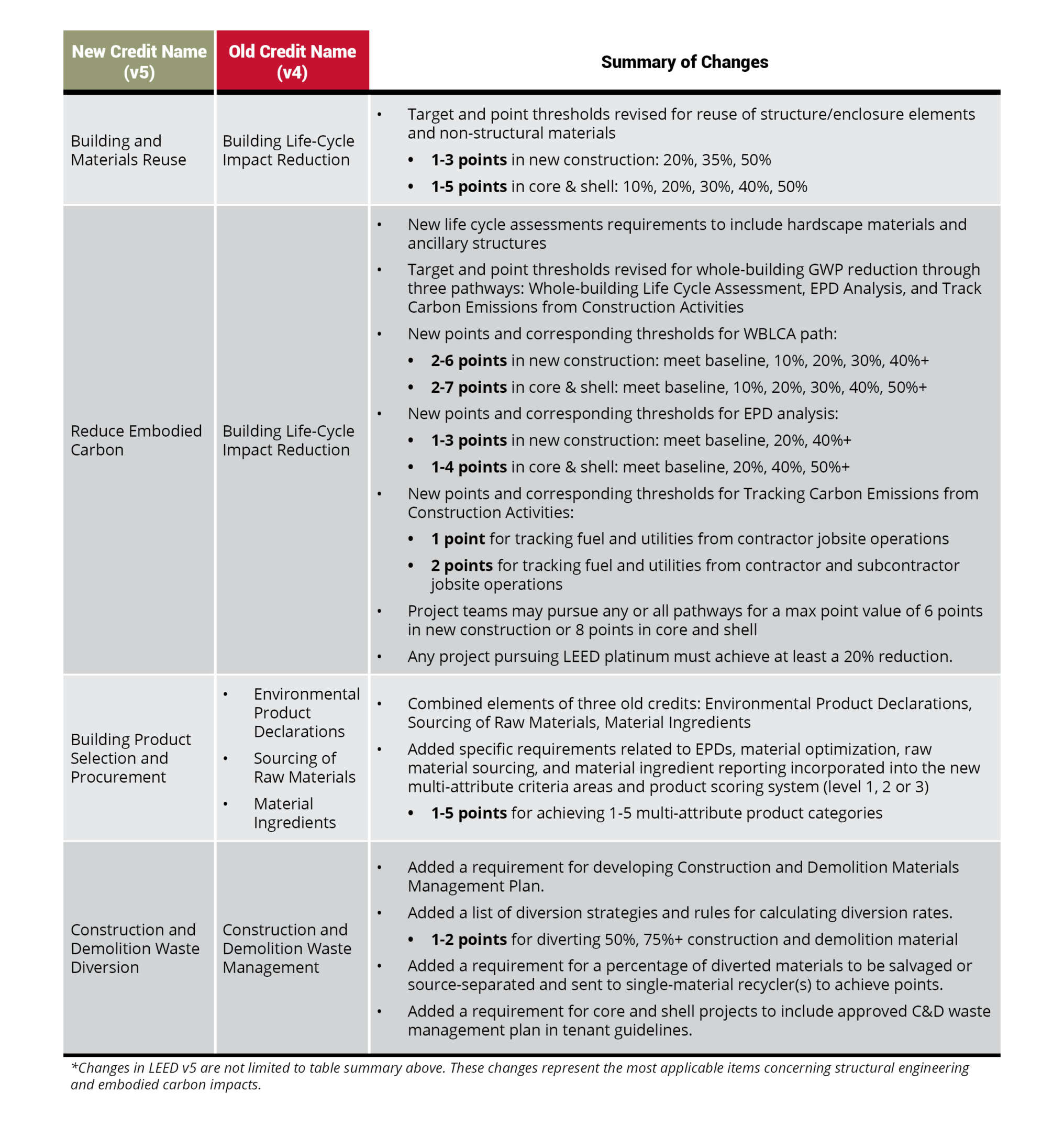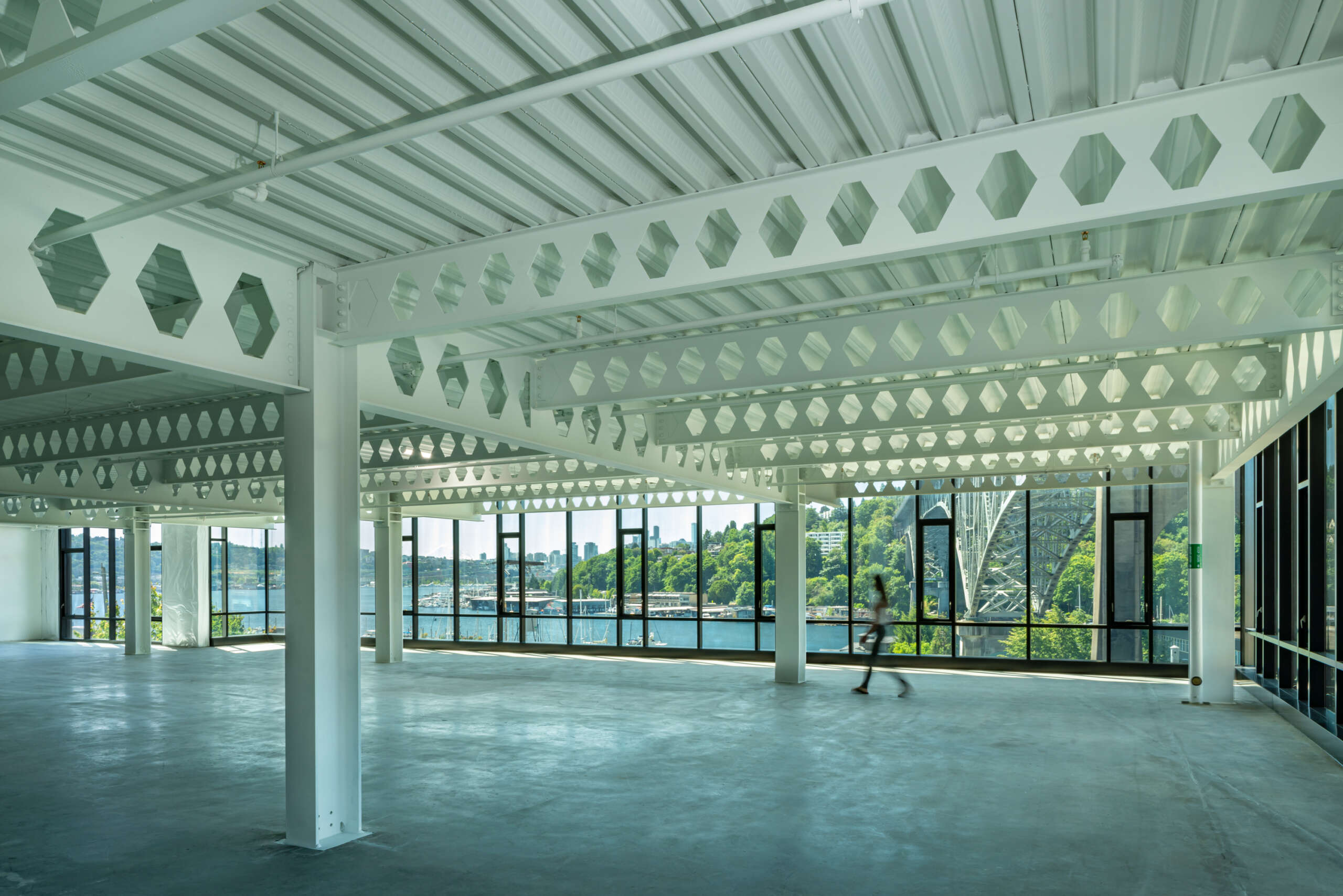On April 28, 2025, the United States Green Building Council (USGBC) announced the release of LEED v5, the newest version of the LEED rating program. This major update has increased focus on the “Materials and Resources” section, driving the market closer to near-zero carbon.
We’re breaking down what this means for design and how teams can be ready!
A new prerequisite, called “Quantify and Assess Embodied Carbon,” requires the project team to quantify the cradle-to-gate (A1-A3) embodied carbon emissions for all structure, enclosure, and hardscape materials. Using that embodied carbon data, teams are then required to describe project-specific strategies for reducing impacts of the top three emission sources. As a prerequisite, it’s required for all projects pursuing LEED, and are a first step towards fulfilling the optional “Reduce Embodied Carbon” credits. It also goes hand-in-hand with another new prerequisite called “Carbon Assessment,” where teams need to provide a 25-year projection of project emissions using the calculations for operational carbon, embodied carbon, and refrigerants.
The goal of these added requirements is to ensure project teams consider the impacts of design decisions earlier on to achieve greater reductions through more cross-discipline collaboration.
DCI has found investing in the early design phases is essential for optimized, cost-effective design solutions. We encourage our clients to have conversations about material reuse, system selection, procurement, and circularity as early as possible. Using our past project experience, the additional up-front effort can save work, carbon, and cost down the road.
Below is a further summary of LEED v5 changes in the Materials and Resources section:


The new LEED v5 updates represent a significant step for carbon reduction in the AEC industry, and DCI is ready to help our clients navigate these changes. We have years of experience with life-cycle assessments, extensive knowledge of low-carbon materials, and have been looking forward to the release of this newest version of LEED to drive our industry towards net zero.
Interested in learning more?
Let’s connect at sustainability@dci-engineers.com
Get all the Sustainability updates by joining our mailing list HERE

Through services, project collaboration, and going all-in on the SE 2050 Commitment, DCI is investing in a more sustainable future.
As co-chair of DCI's Sustainability Committee and Senior Project Manager & Sustainability Specialist, Arizona is helping pave the way for more economical and resilient designs in the industry. Based in DCI's Austin office, Arizona focuses on DCI’s embodied carbon baseline, develops the infrastructure for our sustainability services, and carries out important life cycle assessment work.